Having trouble viewing this email? Click here


|
news ‘An
Officer and a Spy’ by Polanski wins prestigious award in Venice 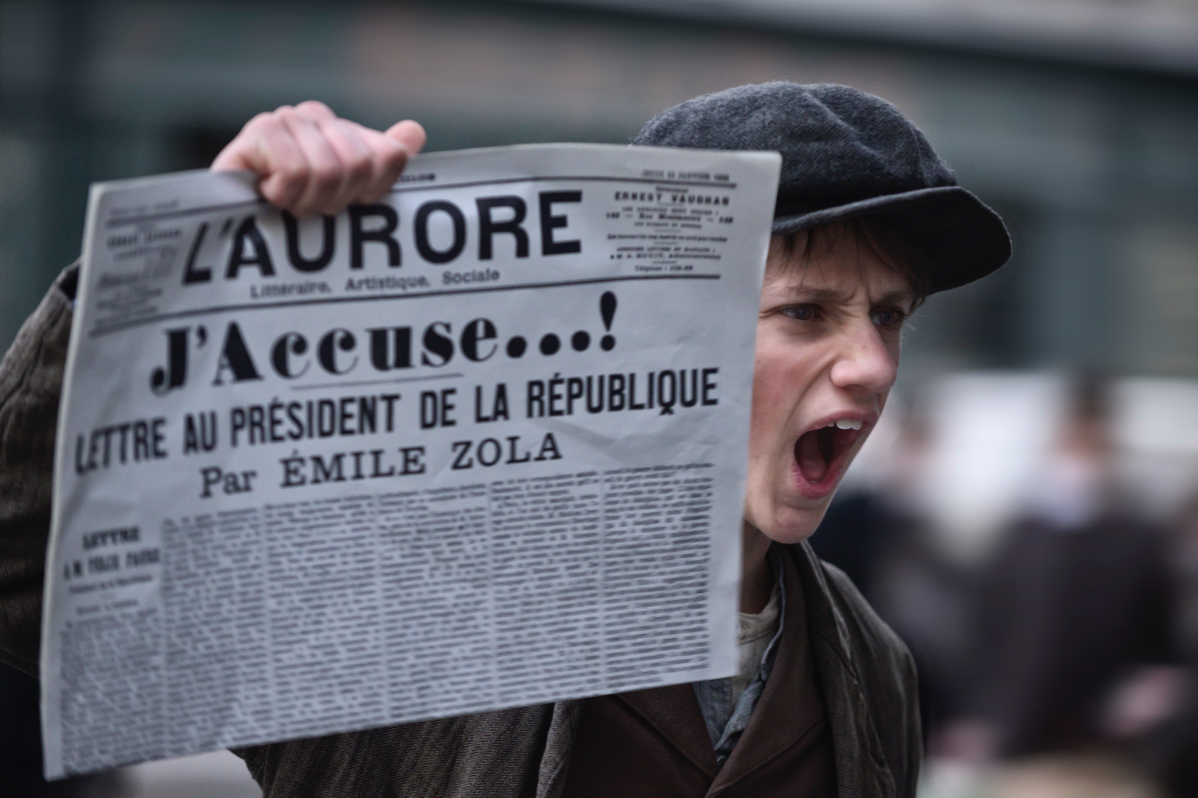
By Pagine
Ebraiche staff |
|
SPORTS New
Israeli ambassador to Italy 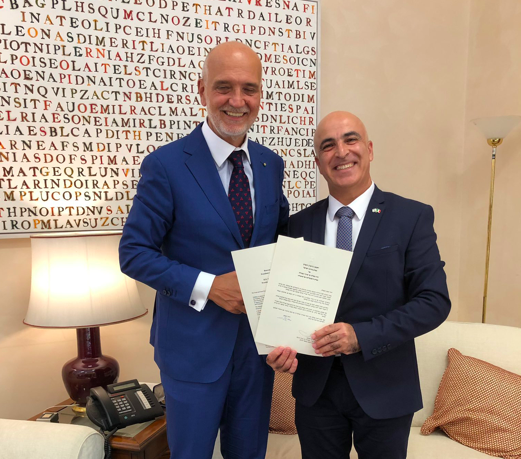
By Pagine
Ebraiche staff |
|
featureS Israel
Philharmonic Orchestra triumphs spectators in Milan 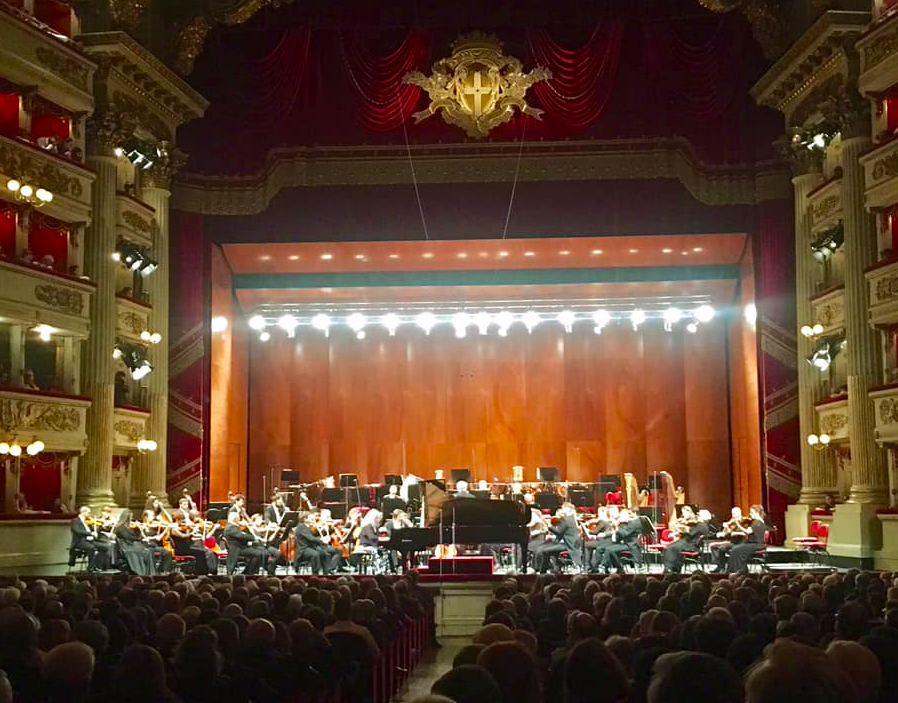
By Pagine
Ebraiche staff |
|
featureS Remembrance and awareness 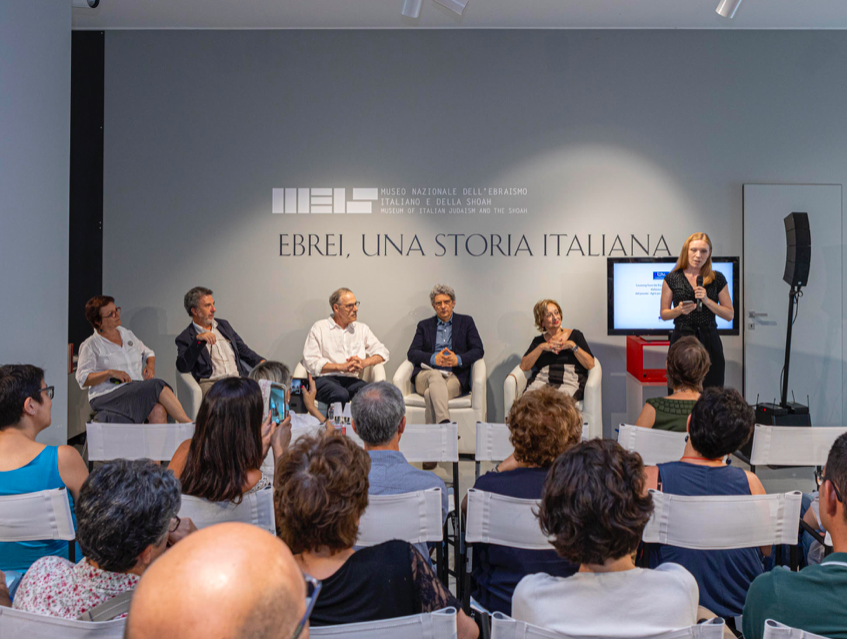
By Pagine
Ebraiche staff |
|
bechol
lashon - Français Le vote et ses manipulateurs 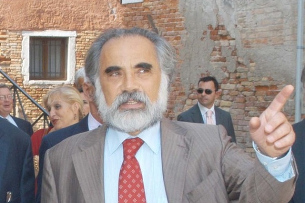
Dario Calimani* |
pilpul Hatred 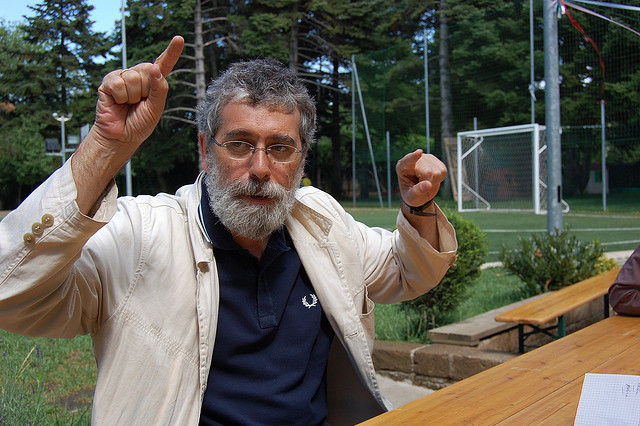
By David Bidussa* |
|
ITALICS Edda Servi Machlin and Remembering  By Yvette Alt Miller* By Yvette Alt Miller*Edda Servi Machlin has died at the age of 93. The cookbook writer changed many people’s understanding of Jewish cuisine and culture by writing prolifically about her childhood growing up in Italy’s distinctive Jewish community. Dating to Biblical times, the Jews of Italy have their own unique traditions, distinct from both Ashkenazi and Sephardi culture. Edda’s warm reminiscences – and delectable recipes – brought this world to life. Edda was born in 1926 in the small town of Pitigliano in Tuscany, which had long been home to a thriving Jewish community. About 20 Jewish families lived in Pitigliano in the 1930s; though small, their community was proud and vibrant, boasting a beautiful synagogue, a Jewish library, two yeshivas, and a Jewish cemetery. One unusual element of Jewish infrastructure in the town made the biggest impression on Edda: the town’s communal kosher oven, which was said to have first been built by Jews fleeing the Spanish Inquisition in 1492. *The article was published in Aish on September 7, 2019. |
 |


This
newsletter is published under difficult conditions. The editors of this
newsletter are Italian journalists whose native language is Italian.
They are willing to offer their energy and their skills to give
international readers the opportunity of learning more about the
Italian Jewish world, its values, its culture and its traditions.
In spite of all our efforts to avoid this, readers may find an
occasional language mistake. We count on your understanding and on your
help and advice to correct these mistakes and improve our publication.
Pagine Ebraiche International Edition is published by the Union of
Italian Jewish Communities (UCEI). UCEI publications encourage an
understanding of the Jewish world and the debate within it. The
articles and opinions published by Pagine Ebraiche International
Edition, unless expressly stated otherwise, cannot be interpreted as
the official position of UCEI, but only as the self-expression of the
people who sign them, offering their comments to UCEI publications.
Readers who are interested in making their own contribution should
email us at desk@ucei.it
You received this newsletter because you authorized UCEI to contact
you. If you would like to remove your email address from our list, or
if you would like to subscribe using a new email address, please send a
blank email to desk@ucei.it
stating "unsubscribe" or "subscribe" in the subject field.
© UCEI - All rights reserved - The articles may only be reproduced
after obtaining the written permission of the editor-in-chief. Pagine
Ebraiche - Reg Rome Court 199/2009 – Editor in Chief: Guido Vitale.
Special thanks to: Francesco Moises Bassano, Susanna Barki, Amanda
Benjamin, Monica Bizzio, Angelica Edna Calò Livne, Eliezer Di Martino,
Alain Elkann, Dori Fleekop, Daniela Fubini, Benedetta Guetta, Sarah
Kaminski, Daniel Leisawitz, Annette Leckart, Gadi Luzzatto Voghera,
Yaakov Mascetti, Francesca Matalon, Jonathan Misrachi, Anna Momigliano,
Giovanni Montenero, Elèna Mortara, Sabina Muccigrosso, Lisa Palmieri
Billig, Jazmine Pignatello, Shirley Piperno, Giandomenico Pozzi, Daniel
Reichel, Colby Robbins, Danielle Rockman, Lindsay Shedlin,
Michael Sierra, Rachel Silvera, Adam Smulevich, Simone Somekh, Rossella
Tercatin, Ada Treves, Lauren Waldman, Sahar Zivan.
Questo notiziario è realizzato in condizioni di particolare difficoltà.
I redattori di questo notiziario sono giornalisti italiani di
madrelingua italiana. Mettono a disposizione le loro energie e le loro
competenze per raccontare in lingua inglese l'ebraismo italiano, i suoi
valori, la sua cultura e i suoi valori. Nonostante il nostro impegno il
lettore potrebbe trovare errori e imperfezioni nell'utilizzo del
linguaggio che faremo del nostro meglio per evitare. Contiamo sulla
vostra comprensione e soprattutto sul vostro aiuto e sul vostro
consiglio per correggere gli errori e migliorare.
Pagine Ebraiche International Edition è una pubblicazione edita
dall'Unione delle Comunità Ebraiche Italiane. L'UCEI sviluppa mezzi di
comunicazione che incoraggiano la conoscenza e il confronto delle
realtà ebraiche. Gli articoli e i commenti pubblicati, a meno che non
sia espressamente indicato il contrario, non possono essere intesi come
una presa di posizione ufficiale, ma solo come la autonoma espressione
delle persone che li firmano e che si sono rese gratuitamente
disponibili. Gli utenti che fossero interessati a offrire un proprio
contributo possono rivolgersi all'indirizzo desk@ucei.it
Avete ricevuto questo messaggio perché avete trasmesso a Ucei
l'autorizzazione a comunicare con voi. Se non desiderate ricevere
ulteriori comunicazioni o se volete comunicare un nuovo indirizzo
email, scrivete a: desk@ucei.it
indicando nell'oggetto del messaggio "cancella" o "modifica".
© UCEI - Tutti i diritti riservati - I testi possono essere riprodotti
solo dopo aver ottenuto l'autorizzazione scritta della Direzione.
Pagine Ebraiche International Edition - notiziario dell'ebraismo
italiano - Reg. Tribunale di Roma 199/2009 - direttore responsabile:
Guido Vitale.
Realizzato con il contributo di: Francesco Moises Bassano, Susanna
Barki, Amanda Benjamin, Monica Bizzio, Angelica Edna Calò Livne,
Eliezer Di Martino, Alain Elkann, Dori Fleekop, Daniela Fubini,
Benedetta Guetta, Sarah Kaminski, Daniel Leisawitz, Annette Leckart,
Gadi Luzzatto Voghera, Yaakov Mascetti, Francesca Matalon, Jonathan
Misrachi, Anna Momigliano, Giovanni Montenero, Elèna Mortara, Sabina
Muccigrosso, Lisa Palmieri Billig, Jazmine Pignatello, Shirley Piperno,
Giandomenico Pozzi, Daniel Reichel, Colby Robbins, Danielle
Rockman, Lindsay Shedlin, Michael Sierra, Rachel Silvera, Adam
Smulevich, Simone Somekh, Rossella Tercatin, Ada Treves, Lauren
Waldman, Sahar Zivan.